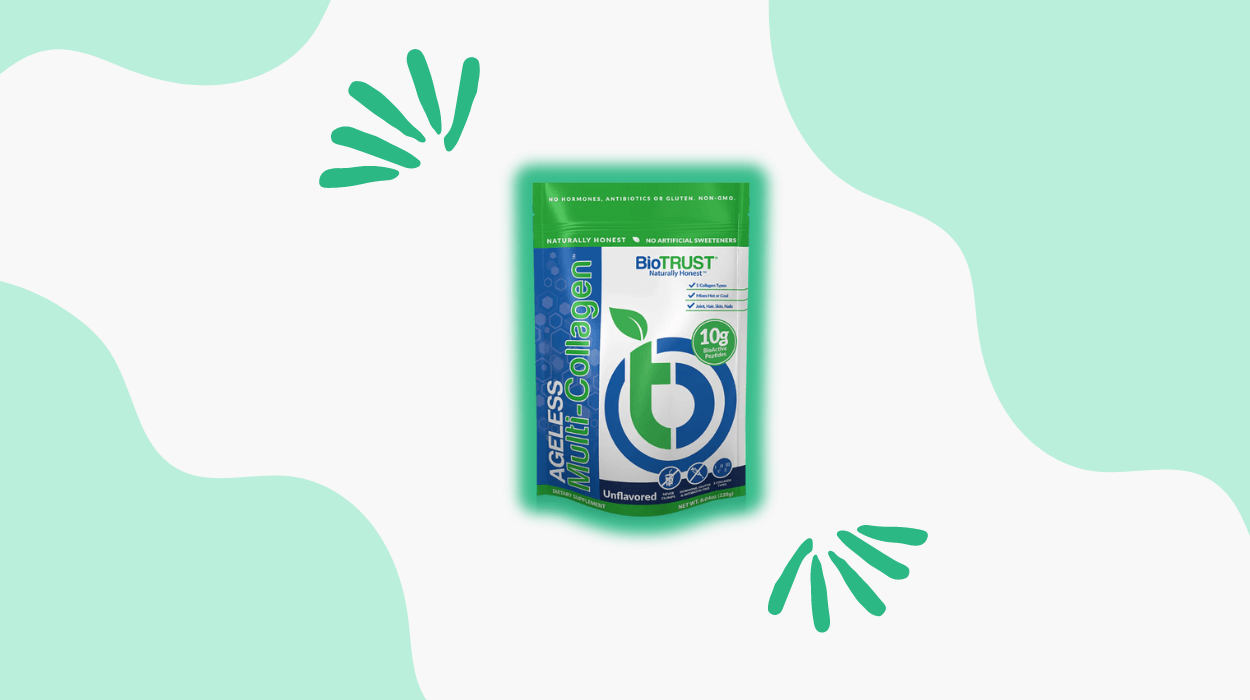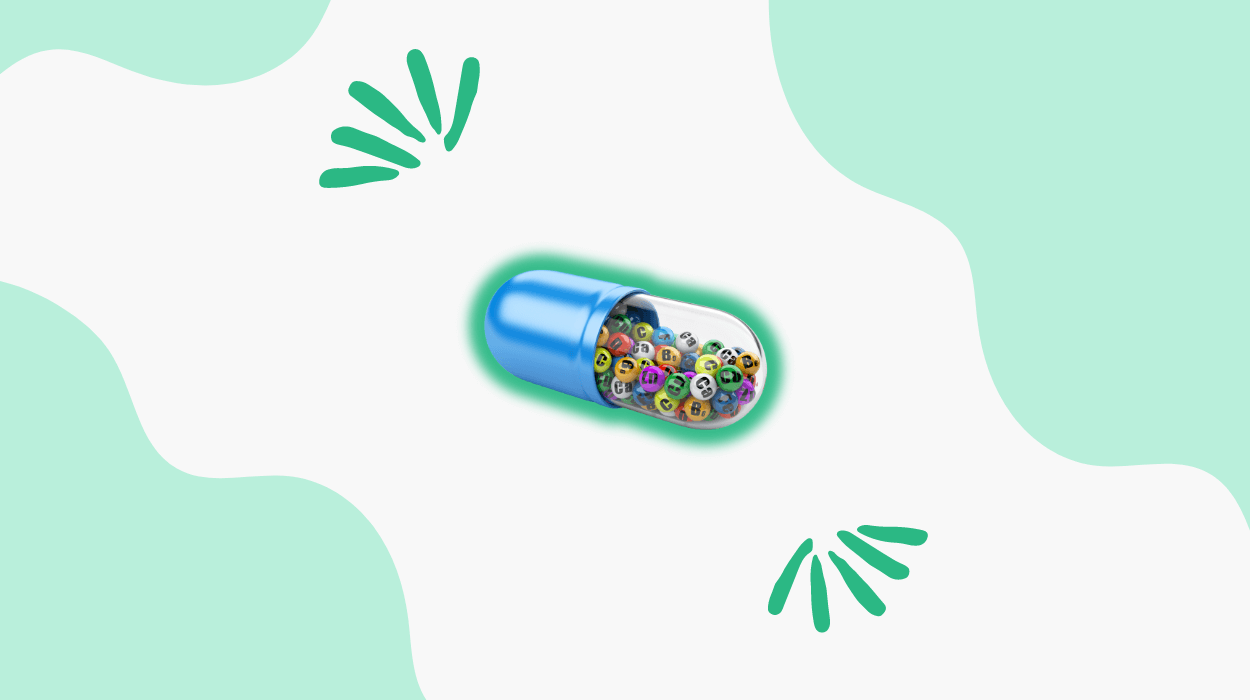

The liver is vital for detoxifying the body and storing essential nutrients. While maintaining a balanced diet and healthy habits are crucial, specific vitamins could also enhance liver function.
This article highlights the role of specific vitamins in supporting liver health. It also explores the effectiveness and safety of vitamin supplementation.
Whether you want to boost your liver function or keep it running smoothly, it could help you make informed decisions regarding the role of vitamins in supporting your liver’s health.

The liver, a crucial organ in the human body, performs various functions necessary for health and well-being:
Moreover, the liver regulates cholesterol production, processes hemoglobin, converts ammonia to urea for excretion, and participates in amino acid regulation. It also removes bacteria, wastes, and toxins from the blood and clears bilirubin.
Milk thistle is an herbal remedy known for its liver-protective benefits. It’s packed with antioxidants like Silibinin and Silymarin, which could fight off harmful molecules in the liver called free radicals. These antioxidants could also increase the production of glutathione, a key player in detoxifying the liver and regenerating liver cells.
Milk thistle may help maintain overall liver health by promoting liver cell regeneration and supporting its natural detoxification processes.
Dandelion root contains antioxidants that could stimulate bile production, aid digestion, and remove toxins from the liver.
Acting as a digestive bitter, dandelion root may help adequately digest fats and facilitate toxin and waste product elimination from the liver.
It may promote bile flow from the liver and gallbladder and release digestive enzymes from the pancreas by stimulating the release of the digestive hormone cholecystokinin (CCK).
The antioxidant properties of dandelion root play a crucial role in protecting liver health by combating oxidative stress, a common factor in liver damage and dysfunction.
With its active compound, curcumin, turmeric shields the liver from oxidative stress. It may help manage fat buildup in the liver and support its detox processes, keeping your liver healthy.
Turmeric’s antioxidant-like effects may help combat oxidative stress in the liver. Curcumin in turmeric may assist in managing the impacts of fat accumulation in the liver.
B vitamins are the groups of vitamins crucial for various metabolic processes, particularly in liver health.
B vitamins are crucial for the liver’s detoxification processes. Methylation, necessary for liver detoxification and other bodily functions, relies on vitamins B12, B6, and folate. Vitamin B6 is essential for glutathione production.
Vitamin B12, mainly found in animal products, is crucial for energy production, with deficiency symptoms including fatigue, cognitive impairment, and tongue swelling.
Choline, a vital nutrient essential for liver health, is critical for fat metabolism and the maintenance of cell structure and function. It is a major component of phosphatidylcholine, a compound essential for cell structure and function, particularly in liver cells.
Choline is necessary for bile acid production, which may support digestion and transportation of fats. It could aid in the transport and metabolism of dietary fats and cholesterol, facilitating the management of fat transportation from the liver.
| Role of Choline in Liver Health | |
| Metabolism of Fats | Choline aids in the metabolism of fats and cholesterol, essential for proper liver function. |
| Cell Structure | Choline is a major phosphatidylcholine component, crucial for maintaining cell structure, especially in liver cells. |
| Bile Acid Production | Choline is essential for producing bile acids, which support fat digestion and transport. |
Vitamin D helps maintain bone health and regulate calcium levels. It could also significantly support liver health by regulating insulin levels.
Adequate vitamin D levels help regulate insulin sensitivity, which is crucial for overall liver health and glucose metabolism. It exhibits anti-inflammatory properties that could benefit liver health by reducing inflammation within the organ.
Vitamin D plays a role in modulating immune responses, which can protect the liver from infections and diseases. It involves various metabolic processes essential for liver function, like lipid metabolism and glucose homeostasis.
Maintaining optimal vitamin D levels is essential for liver health, as deficiencies in this nutrient might increase the risk of liver diseases and compromised liver function.
Vitamin E may help break the chain reactions of oxidative stress caused by free radicals, thus benefiting liver health.
Foods rich in Vitamin E may include olive oil, almonds, sunflower seeds, meats, eggs, peanut butter, dairy, leafy greens, and fortified cereals.
Studies have shown that Vitamin E supplementation might reduce liver inflammation and lower fat levels, contributing to overall liver health.
Artichoke leaf is a powerhouse of antioxidants like luteolin and chlorogenic acid, protecting your liver from oxidative stress and boosting bile flow. It might also help reduce fat in the liver and increase antioxidant enzyme activity.
Artichoke leaf extract is enriched with luteolin, which has been shown in studies to decrease liver fat and enhance metabolic indicators. It could boost antioxidant enzymes in the liver, such as superoxide dismutase (SOD) and catalase.
Beetroot has a high antioxidant content, particularly betalains. These antioxidants could protect the liver from damage caused by harmful molecules called free radicals.
Beetroot could promote the growth of beneficial bacteria in the gut, indirectly benefiting the liver. A healthy gut microbiome is critical for adequate digestion, absorption of nutrients, and overall liver function.
Vitamin C could protect the liver from oxidative damage and support various physiological functions. It could protect against potential harm caused by free radicals, toxic substances, and environmental pollutants.
Vitamin C is essential for maintaining liver health and may also aid in wound healing, boosts immune function, and assist in fat metabolism within the liver.
Ginger root, known for its antioxidant properties and active compound gingerol, is beneficial in managing oxidative stress and supporting liver health.
It stimulates bile production, aiding digestion and absorption of fats and fat-soluble vitamins essential for overall liver function.
The diaphoretic properties of ginger may promote healthy blood circulation, assisting in transporting nutrients and oxygen to the liver for optimal functioning.
Gingerol exhibits anti-inflammatory effects that could help reduce inflammation in the liver, supporting its overall health and function.
Cysteine, an amino acid crucial for synthesizing glutathione, may support liver detoxification.
Glutathione, synthesized from cysteine, neutralizes toxins and free radicals in the liver, contributing to its detoxification function.
Research suggests that cysteine supplementation may benefit people with liver conditions or those seeking to support liver health.
Cysteine might help enhance the liver’s ability to process and eliminate harmful substances by increasing glutathione levels. Its antioxidant properties could protect liver cells from damage caused by oxidative stress, promoting liver health.
Drinking alcohol moderately might not hurt your liver right away, but over time, it can do severe damage. Here’s why:
Working out regularly is super important for a healthy liver. Here’s why:
Getting enough good sleep is vital for a healthy liver. Here’s how it helps:
Eating right is crucial for keeping your liver in top shape. Here’s what to focus on:
Drinking enough water is essential for a happy liver and overall health. Here’s why it’s important:
Keeping your liver healthy is important for your health and longevity. Adding vitamins and nutrients like milk thistle, dandelion root, Vitamin A, B complex, D, and E to your diet could boost liver function.
Also, natural foods like beetroot and ginger root have antioxidants and anti-inflammatory properties that could be suitable for liver health.
You can also protect your liver from damage and keep it working at its best. Staying healthy and full of energy is crucial by watching what you eat and including various liver-friendly foods in your meals.
Tyler Read earned an undergraduate academic degree from Sonoma State University, California and is a certified personal trainer (CPT) with NASM (National Academy of Sports Medicine). With over 16 years of experience, Tyler has trained clients both online and in-person.
He is passionate about helping others turn their love for fitness into a career. Tyler has worked with many local and commercial gyms before establishing his successful private personal training business, which he continues to operate.
